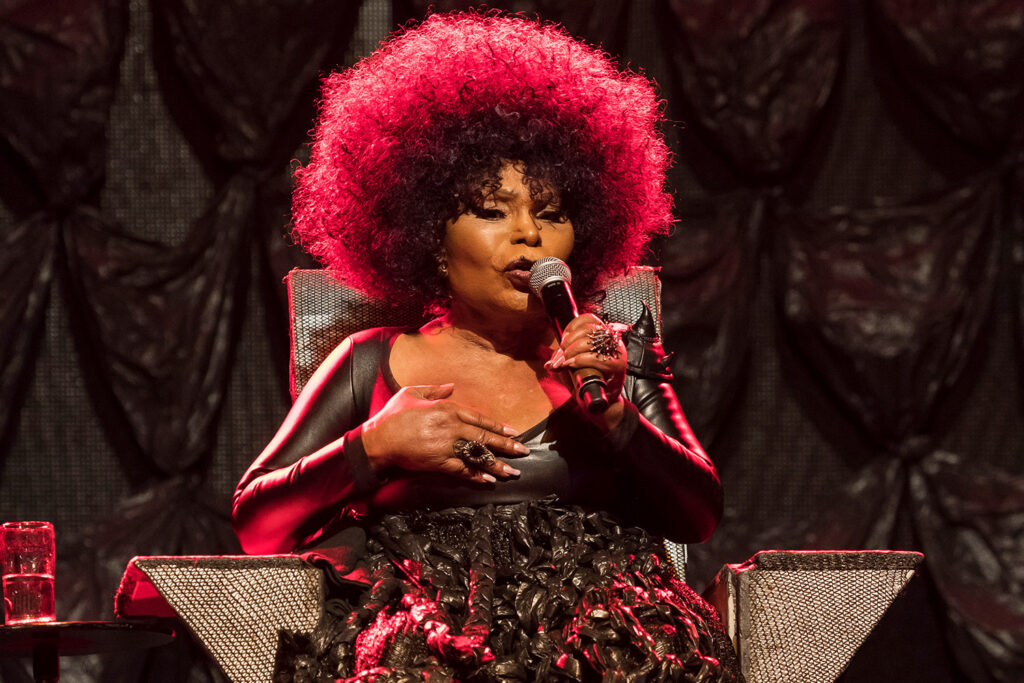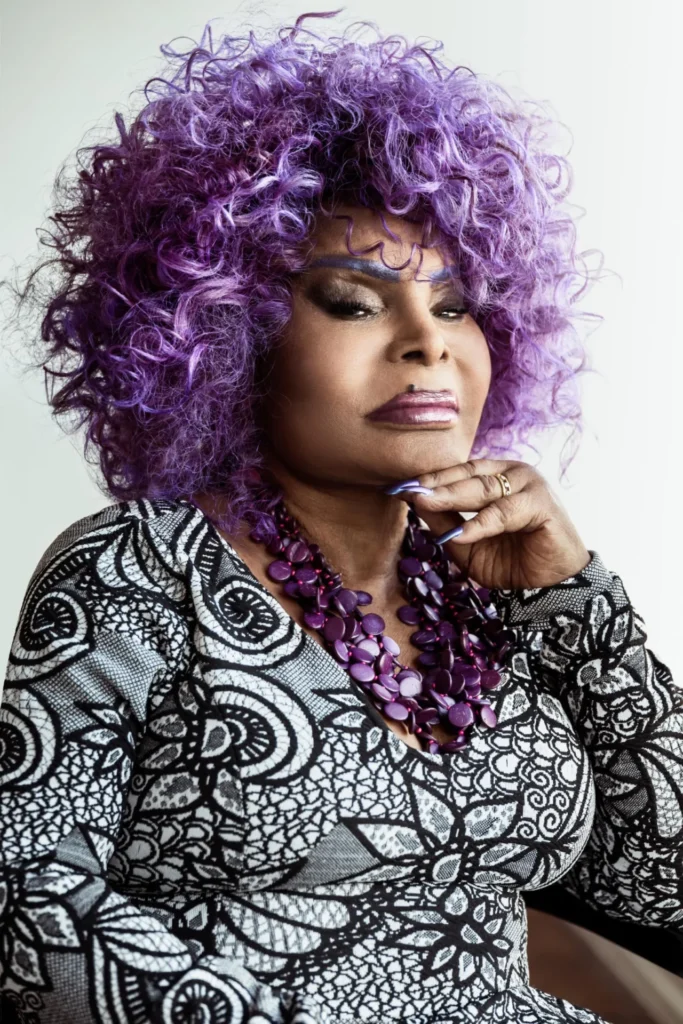Dubbed The Voice of the Millennium by the BBC in 1999, Brazilian singer Elza Soares passed away on 20 January 2022 at the age of 91. This 22 April, her single Meu Guri (My Lad) is released. It is part of the album Elza ao Vivo no Municipal (Elza Live from the Theatre of São Paulo) recorded just before her sudden death and due to be released on 13 May 2022.
Apart from her new album, her voice, and her legacy for Brazilian music, she was a strong representative of black activism in the country. She supported black female artists and fought against any form of discrimination. Her songs talk about romance, racism, and feminism, all to be alive in the spirit of the growth to come.
As a girl, she was abused and forced by her father to marry the abuser. She was a victim of marital rape and domestic violence. She lost four kids – two to famine. She was vilified by misogynist public opinion and assaulted by strangers. She was persecuted by the military dictatorship (1964-1985), and racism stalked her throughout the nine decades of her life.
A target of so much violence, her voice was the home of a gentle bass that accompanied her relentless fight and resistance, love and femininity, self-esteem, and beauty.

From Samba to Rap
Her album A Mulher do Fim do Mundo (The Woman from the End of the World) won the Latin Grammy Award 2016 for Best MPB (Brazilian Popular Music) Album and was voted one of the ten best MPB albums of all time. It talks about being black, sex, survival, and other issues in meaningful ways to her life and the millions of Brazilians’ lives.
In her 63-year career, Elza Soares synthesised the paths of Brazilian music over the last six decades. Her discography has 35 albums. The first, Se Acaso Você Chegasse (If You Came by Luck), was released in May 1960 on the Odeon label.
In her trajectory, she had countless songs at the top of the hit charts in Brazil. Some of the biggest hits include Se Acaso Você Chegasse (1960), Boato (1961) (Rumour), Cadeira Vazia (1961) (An Empty Chair), Só Danço Samba (1963) (I Only Dance Samba), Mulata Assanhada (1965) (Hussy Black Woman), and Aquarela Brasileira (1974) (Brazilian Watercolour).
She interpreted lyrics by the greatest Brazilian writers. From Lupicínio Rodrigues (1914-1974), icon of the bitter Samba-canção of the 1940s and 1950s, to Romulo Fróes and Kiko Dinucci, leading names on the São Paulo music scene of the Twenty-First Century. Caetano Veloso, Jorge Ben Jor, Cazuza (1958-1990), Seu Jorge, and Pedro Luís are just some of the most famous writers she interpreted. Meu Guri is a lyric by Chico Buarque.

Elza Soares started in Samba but experimented with diverse rhythms. She claimed she liked to be “daring”.
She sang Sambalanço, a genre marked by its sinuous rhythm, perfect for her ginga and husky voice, Samba-canção, and. Bossa Nova. She contributed to the popularisation of the Samba-enredo in the mid-1960s.
In 1972, she tried a mixture of Samba and Soul. Throughout the 1970s, she worked on sambas related to Afro-Brazilian religious themes, following her close friend and fellow singer Clara Nunes.
In the 1980s, she also sang Jazz, Blues, and Soul. From 2000 onwards, she added Funk and Rap to her repertoire.
“I always wanted to do something different, I can’t stand labels, I’m not a soft drink,” she said once. “I follow the time, I am not square, there is no such thing as standing still for me. I walk. I always walk together with time”, Soares explained.
Poverty, losses, and a forced marriage
Born on 23 June 1930 in the favela Moça Bonita, currently known as Vila Vintém, in the west zone of the city of Rio de Janeiro, Elza Gomes da Conceição and her family struggled for survival. As a child, she helped her mother with household chores, carrying water cans on her head.
At the age of twelve, she was forced by her father to marry a friend of his who had tried to abuse her. Her father believed that only the marriage would clean his daughter’s honour. She got pregnant at the age of 13. The marriage was marked by physical and sexual violence.
At twenty-one, she had four children and was widowed. Elza had already lost two newborn children to malnutrition, and her daughter had been kidnapped when she was one year old and would only be reunited with her mother thirty years later.
In 1953, she decided to apply to a talent show so she could earn some money for one of her children’s medical treatments. During the radio show, the 23-year-old singer was criticised by the presenter because of her choice of clothes.
“What planet have you come from, girl?”, the host asked her. “I am from the same planet you have come from, Sir: the planet famine”, she answered. She won top marks and the presenter then announced that, at that moment, a star had just been born.
In the album Planeta Fome (Planet Famine), released in 2019, Elza delved into her torn past and spoke about the raw struggles women face in life.
“My father and my family didn’t want [me to be a singer] because, at that time, a woman who sang was a prostitute. And, to this day, prostitute is the word I like best. I swear. Because, deep down, everybody is a prostitute. I think that deep down we prostitute ourselves a lot. Even without knowing it, we prostitute ourselves at work, the salary, putting up with the manager, putting up with the boss. Sometimes, a woman has her period, she is dying of cramps, but she must go to work. She argued at home with her husband, but she has to get back home and bring him her black meat.”
Kicking discrimination
The voices of women, black people, and LGBTQIA people have been represented through Soares’ memorable works.
In Lama (Mud), she sang about empowerment and the courage to overcome the past. In Maria da Vila Matilde (Mary from Slum Matilde), she talks about domestic violence inspired by what she suffered, especially during her marriage to Brazilian footballer Mané Garrincha.
In an interview, a journalist asked her how she was able to get over discrimination in her career. “By kicking it, going over it, flushing it. You flush that toilet, but there is another one and another one. You keep flushing”, she answered.

Domestic violence
Elza met Garrincha in 1962 during the Football World Cup. They started their romance while he was still married. He soon separated, and they lived twenty years together, but in all that time, the singer was accused of destroying families and was even publicly assaulted.
The two had a son who died at the age of nine in a car crash. Elza had lost another child while she was again a victim of domestic violence perpetrated by her alcoholic husband.
In 1965, in the song Eu Sou a Outra (I am the Other Woman), she sang about her relationship with Garrincha in an ironic way and indirectly against what they lived.
Years after the end of their relationship, Elza came to sing about the violence she survived. In Maria da Vila Matilde she promoted the Brazilian law Maria da Penha and the violence that many women suffer daily.
Black meat
In the song A Carne (1998) (The Meat), she sang against racism. “The cheapest meat in the market is black meat” is one of her most famous lines. In an almost five minutes music video clip, the artist denounced the reality of black people in Brazil, those “who go to prison for free, and go for free to underemployment, and psychiatric hospitals”.
Recently, Elza said: “Since my youth, the situation of black people has not improved a bit in Brazil. Life is still complicated for minorities. It is the same suffering as always.”
Fighting to her last breath
According to her family, she seemed in high spirits just after recording this new album. Suddently she turned to them and said: “I think I’m going to die”. Her fateful words recognised her strength, even death could not frighten her into stopping her from fighting to her last breath. “She sang until the end,” are the words stated in a final note posted by her team on the singer’s Instagram.
However, in her own inspiring words that will live on alongside her music and spirit are: “The first step to transforming things is to keep fighting, not to give up. That’s why I make it a point to be an activist. It’s part of my personality. I fight, I shout, I go to the fight. For gays, for black people, for youth, for women, for those who are not heard”.
Meu Guri is available on Spotify, Apple Music, and Deezer.












